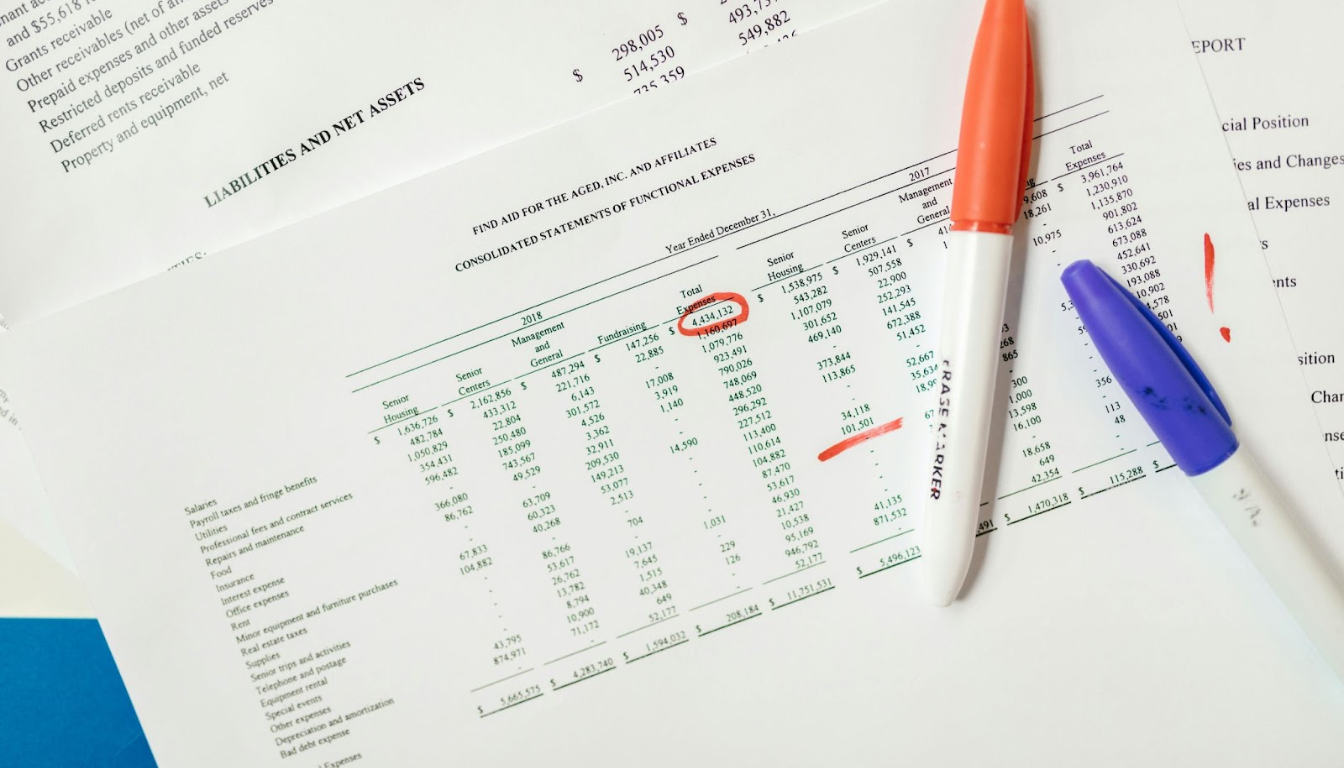Mastering Event Budgeting and Equipment Rentals: Tips and Essential Expenses

Corporate event budgeting means planning your expenses to ensure your event is a success. Closely monitoring the event's financial performance is essential for measuring the event's success and achieving your objectives. Event costs refer to the comprehensive expenses associated with different types of events, including in-person, virtual, and hybrid formats; tracking and prioritizing these costs, as well as analyzing the event's financial performance, is essential for effective event budgeting. This guide will show you how to budget for tech and equipment rentals, choose the right vendors, and get the most out of your budget. Avoid surprises and make your event outstanding through smart budgeting that contributes to the event's success by ensuring financial goals are met.
Key Takeaways
- Accurate budgeting for technology and AV equipment is crucial for the success of corporate events, as it directly impacts attendee engagement and brand reputation.
- Incorporate a contingency fund of 10-15% for unforeseen costs related to tech rentals, ensuring a budget-friendly approach while preparing for surprises.
- As mentioned earlier, post-event analyses of tech investments provide insights into the event’s financial performance, allowing you to measure ROI and refine future budgeting decisions based on the effectiveness of utilized technologies.
- Set clear financial goals during the event planning process and track financial success to ensure your event meets its objectives and maximizes potential revenue streams.
Why Tech and Equipment Budgeting Matters for Corporate Retreats

In today’s corporate events, technology has become indispensable. Whether it’s a small team-building retreat or a large-scale corporate event, technology plays a crucial role in the event industry. From audiovisual presentations to interactive apps, the right tech setup can elevate your impactful event from ordinary to extraordinary, contributing to the event’s success and setting the stage for the next event. An experienced event planner can expertly coordinate technology and logistics, ensuring every aspect of the event runs smoothly and professionally.
Accurate budgeting for tech and AV equipment is vital. For in-person events, unique budgeting considerations such as onsite technical support, equipment transportation, and setup costs must be factored in. Underbudgeting can cause technical failures, poor attendee engagement, and a diminished return on investment. Imagine a scenario where your keynote speaker’s presentation is marred by faulty projectors or inadequate sound systems. The negative impact on your event’s success and your brand’s reputation could be significant.
An accurate tech budget ensures a seamless and engaging experience for attendees. Investing in the right technology enhances the overall event and shows a commitment to quality and professionalism.
Core Categories in a Corporate Retreat Tech Budget
An effective event budget organizes expenses into clear categories, helping you account for fixed and variable costs, track actual spending, and manage the total event budget with accuracy and control. It is important to distinguish between fixed and variable costs when budgeting for an event. Fixed costs, such as venue rental, remain constant regardless of the number of attendees, while variable costs fluctuate depending on attendance.
Here are the essential areas in the planning process to identify areas to consider for a holistic view: venue rental, food and beverage, other costs, and more.
Forecasting projected expenses is crucial for effective event budgeting, as it helps allocate resources and measure financial success against initial estimates.
How to Budget for Tech and AV Equipment Rentals

Including a dedicated line item for tech and AV equipment rentals helps manage expenses effectively and ensures critical elements are not overlooked.
Venue selection can significantly impact your tech requirements and overall budgeting, as different venues may have varying infrastructure, in-house equipment, and associated costs.
Estimate costs based on your event’s size and format. Large-scale events require more extensive tech setups than smaller retreats. If you are planning a hybrid event, remember that combining in-person and virtual elements introduces unique tech and budgeting considerations, such as streaming equipment and additional connectivity needs. Focus on essential tech to ensure a smooth event planning process experience without overspending.
Include a 10-15% contingency fund buffer to cover unforeseen expenses like last-minute equipment rentals or unexpected costs such as technical issues. Monitoring and controlling each expense is crucial to staying within budget and being prepared for surprises.
Contingency Planning for Event Budgets and Equipment Rentals
Contingency planning is a vital part of the event planning process, especially for in person and corporate events where unexpected costs can quickly derail even the best-laid plans. A well structured budget should always include a contingency fund—typically 10-15% of the total budget—to cover unforeseen expenses such as last-minute venue rental changes, equipment malfunctions, or additional service fees. By proactively setting aside resources for these unexpected expenses, event planners can safeguard the event’s financial success and avoid scrambling for solutions when surprises arise.
Effective contingency planning starts with identifying potential risks that could impact venue costs or equipment rentals. For example, event planners might consider renting backup AV equipment or securing flexible venue agreements to accommodate sudden changes. This forward-thinking approach ensures that, even if something goes wrong, the event can continue smoothly without exceeding the planned budget.
Managing logistics is equally important. Coordinating closely with vendors, confirming delivery schedules, and double-checking inventory can help prevent costly last-minute issues. By maintaining open communication and having backup plans in place, event planners can minimize disruptions and keep expenses under control.
Ultimately, incorporating a contingency fund and robust planning strategies into your event budget not only helps manage costs but also provides peace of mind. This allows you to focus on delivering a memorable event experience, knowing you’re prepared for whatever challenges may arise.
Finding the Right Vendors and Managing Costs
Finding reliable vendors is crucial. Consider the following when selecting providers:
- Look for providers with a proven track record in corporate events.
- Compare their audiovisual equipment rental packages.
- Consider bundling services to gain cost efficiency through discounts on comprehensive packages.
Event planners play a vital role in selecting vendors and managing costs, ensuring that the chosen providers align with the event's objectives and budget.
Negotiating contracts and service levels helps manage costs and service style. Clearly define your needs and expectations to avoid hidden fees and ensure your budget remains intact. Involve key stakeholders in the vendor selection and budget approval process to ensure all important perspectives are considered.
Maximizing ROI from Event Technology Services

Align tech investments with your event goals to maximize ROI. Whether enhancing attendee engagement or facilitating communication, your technology should support these goals.
Leveraging event technology can also help create new revenue streams from attendees, sponsors, or exhibitors, further increasing your event's profitability.
Measuring the impact and engagement from AV production and tech use assesses the value of your investments and leaves a lasting impression. Post-event evaluations reveal which technologies were most effective, guiding future decisions.
Consider strategies to allocate resources effectively to reuse or repurpose rented tech for added value. Managing technology throughout the entire event lifecycle is essential to maximize value at every stage.
Tools for Smarter Budgeting

Budget tracking software tailored for events simplifies the event management budgeting process. These tools often include tech-specific categories, making resource allocation easier, including event management software, event registration software, and budget planning.
Google Sheets is also a popular tool for organizing and tracking event budgets, allowing teams to collaborate and update expenses in real time.
Data from past events can help forecast future events and costs, ensuring a realistic and comprehensive budget. This proactive approach offers better financial control and avoids unforeseen expenses. Using budgeting tools also helps monitor cash flow and ensures there are sufficient funds available throughout the event.
Post-Event Budget Review and Reporting
Reconciling projected versus actual costs after the event is crucial. A post-event report detailing tech and AV spending provides valuable insights for future budgeting. Reviewing total meeting spend can help identify areas for improvement and ensure better financial planning for upcoming events.
Post-event analysis to assess the event's tech-related ROI and increase it helps understand the effectiveness of your investments and informs future decisions.
Common Event Planning Mistakes to Avoid
Avoiding common event planning mistakes is essential for keeping your event budget on track and ensuring a successful outcome. One of the most frequent errors is failing to develop a comprehensive event budget, which can lead to untracked event expenses and unforeseen expenses that jeopardize the event’s financial aspects. Event planners should always start with a clear understanding of projected expenses, revenue streams, and any budget constraints to create a well structured budget.
Another mistake that can greatly affect event success is not allowing enough time for the planning process. Rushed venue selection, inadequate vendor management, and last-minute changes can all drive up costs and reduce the quality of the attendee experience. Setting a realistic timeline for each stage of event planning helps ensure that all details are addressed and that the event runs smoothly.
It’s also crucial to manage actual expenses throughout the event lifecycle. Regularly tracking spending, identifying areas for cost savings, and adjusting the budget as needed can help event planners stay within budget and avoid financial surprises. Leveraging event management software makes it easier to monitor expenses in real time, streamline communication with vendors, and maintain financial control.
By steering clear of these common pitfalls—such as neglecting budget planning, underestimating expenses, and failing to use available tools—event planners can create impactful events that meet their goals and deliver memorable experiences. Careful attention to budgeting, logistics, and event management ensures that your next event is both successful and cost-effective.
Final Tips for Managing Tech Budgets Without Sacrificing Quality

Early vendor discussions can provide better negotiation power and rates. Scalable solutions let you adjust your tech setup based on the event’s size and scope.
For in person events, consider budgeting strategies that account for on-site experiences, associated costs, and attendee satisfaction to ensure a successful gathering.
Hybrid ownership-rental models can save money without compromising quality. Keep the attendee experience central to tech spending decisions for a memorable event.
Achieving a significant number of attendees or realizing significant cost savings can greatly impact the overall success and financial outcome of your event.
Summary
Mastering event budgeting for technology and equipment rentals requires careful planning and strategic thinking. By considering core categories, finding reliable vendors, and using smart budgeting tools, you can ensure a successful and memorable corporate retreat. Some teams even leverage platforms like Offsite, which help streamline the planning process by managing logistics, vendor coordination, and on-site needs—making it easier to stay within budget while maintaining a high standard of execution.
Remember, the key to effective budgeting is not just about cutting costs but about making informed decisions that enhance the overall attendee experience. Armed with these tips and strategies, you’re now ready to create an event budget that delivers both financial control and exceptional quality.
FAQs
- Why is technology important for corporate retreats?
Technology is essential for corporate retreats as it enhances the experience by ensuring smooth presentations and fostering engagement among participants. Embracing technology allows for an impactful and productive retreat.
- How can I estimate the cost of tech and AV equipment rentals?
To estimate the cost of tech and AV equipment rentals, focus on the event size and format, prioritizing necessary equipment while including a 10-15% contingency buffer for unexpected expenses. This approach ensures you have a realistic budget that accommodates potential fluctuations.
- What should I include in my tech budget categories?
Include categories for audiovisual equipment rental, event technology services, office equipment rental, internet and connectivity infrastructure, and on-site tech support in your tech budget. This will ensure comprehensive coverage for your technological needs.
- How can I find reliable vendors for tech rentals?
To find reliable vendors for tech rentals, prioritize providers with a strong reputation in corporate events, compare their packages, and negotiate contracts to ensure transparency and avoid hidden costs.
You may also like
Unique spaces for your next offsite
Find distinctive venues for your upcoming corporate retreat.
Stay Updated with Our Insights
Get exclusive content and valuable updates directly to you.







